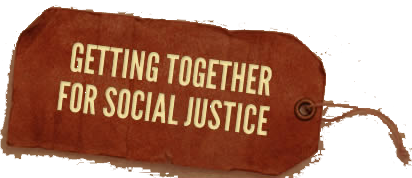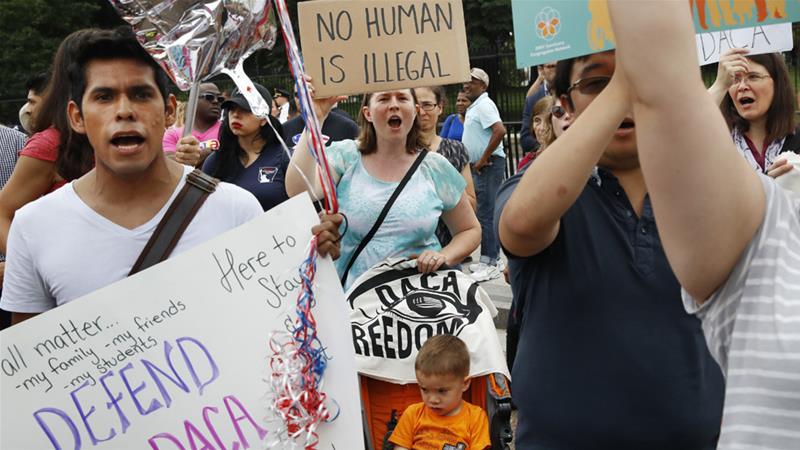
Paul Kivel's Newsletter
Resources for Racial Justice
|
|
| |
|
|
| |
|
A Note from Paul Fall 2017
|
Dear People,
I'm very glad to see that the resistance demonstrated by women and people who are trans and gender queer to the everyday, pervasive sexism and misogyny they experience is receiving some public recognition. This exploitation and violence devastates all of our lives and communities and benefits only the white Christian male ruling elite that rules our country. There are now 3 such men who own as much wealth as the bottom 50% of the U.S. population (approximately 160 million people. These men are Bill Gates, Warren Buffet and Jeff Bezos, with the Walmart family, the Koch brothers and other billionaires right behind them. A close ally of the Koch brothers, Mike Pence is our vice president. (Impeaching Trump will not solve our problems.)
This newsletter starts out with some resources for men and those working with men and boys on issues of male violence. It also includes more resources for racial justice.
I am very excited by the positive response to the new edition of Uprooting Racism, now available online and in bookstores. I've included some sections of the book in this newsletter as resources for white allies.
Your efforts to increase its visibility are greatly appreciated. Let me know if you have ideas about how to get it into the hands of all those white people currently looking for ways to get involved in racial justice work. If you think it is a useful resource in this historical moment please spread the word.
|
|
 |
|
| |
|
Man to Man
|
THE LETTER BELOW IS SOMETHING I wrote to address individual men in communities that I live, work and play in because we still, all too often, assume that "our" men have it together and are safe and non-abusive in their personal interactions.
Dear Friend,
Welcome to our community. Whether you are entering our neighborhood, our workplace, our school community, our congregation, or other collective spaces, I hope you will be welcomed, safe, respected, and fully able to participate in our activities and life together....
For me, there is only one healthy, safe, and healing way to be in relationship with the people around me and that is to create relationships built on respect, consent, and mutuality, and even that may not always be enough. In this context I am referring to every level of interaction from casual encounters at the bus stop or in a store, to the most intimate moments of a sexual relationship....
|
|
Young White Men
|
WE HAVE A VERY SERIOUS PROBLEM in this country. No, it's not welfare mothers, it's not recent immigrants, it's not African-American or Latino men, it's not Arab terrorists-it is young white men.
Nearly 70% of the devastating violence we experience in our communities is committed by white men and nearly 50% of that is committed by young white men between the ages of fifteen and thirty.
1 What kind of violence am I referring to? Take your pick. Domestic violence, rape, acquaintance rape, incest, male on male fights, serial killings, racist hate crimes, gay-bashing, arson, campus riots such as recently occurred at Michigan State University, and barroom brawls. Estimates are that 95% of all violence in our society is committed by males, and although women, men of color, and white men of all ages certainly can be violent, the overwhelming majority of acts of violence can be traced to young white men...
|
|
What do you stand for? Who do you stand with?
|
Since the publication of the first edition of my book Uprooting Racism?: How White People Can Work for Racial Justice over twenty years ago there are a massive number of studies and
other forms of documentation demonstrating the workings of racism in everything from its devastating impact on the lives and opportunities of people of color to how white people think, act and talk about racism, what benefits we gain from it and how it is perpetuated in the everyday practices and policies of our organizations and institutions.[1]
Despite all of this documentation, it has taken the disruptive, bold, and creative leadership of the Movement for Black Lives, the courageous resistance of Native peoples at Standing Rock and the organization and direct action of the Dreamers, young immigrants threatened with deportation by the administration's attacks on the DACA act, coupled with the increasing visual evidence of everyday violence against people of color, to bring racism to the attention of white people in the US. And even with this leadership and visual evidence, there is a widespread white culture of denial and minimization about the existence and centrality of racism. Despite pervasive segregation and discrimination in education, housing, health care and the job market; despite widespread surveillance, control and punishment of people of color through the welfare, child welfare, foster care, education, police, immigration and criminal/legal systems; despite hate crimes, police brutality, racial profiling and everyday forms of what has been called micro-aggression against people of color, a November 2015 poll showed that while most white people believe acts of racism still occur, less than half (43%) believe racism is a major societal problem [2] and 56% said racism wasn't a problem in their community.[3]
To continue reading this article, click
here.
|
|
Related Books and Curricula
|
Young Men's Work
: Stopping Violence and Building Community (with Allan Creighton)
Helping Teems Stop Violence, Build Community and Stand for Justice (with Allan Creighton)
|
| Cultural Appropriation |
The sense of entitlement white people are socialized to have leads directly to cultural appropriation: taking traditional knowledge, cultural expressions, or artifacts from someone else's culture without permission. This can include unauthorized use of another people's dance, dress, music, language, folklore, cuisine, traditional medicine, or religious symbols. It's most likely to be harmful when the source community is a group that has been oppressed or exploited in other ways or when the object of appropriation is particularly sensitive, e.g. sacred objects.[1]
Cultural appropriation is often an extension of genocide, enslavement, forced removals, and land theft, as settlers take what does not belong to them. It can be the final step in a genocidal process that continues long after a nation or culture has been physically defeated. Memorialization, respect for, and acknowledgement of the cultural contributions of the defeated can even be used to demonstrate the "benevolence" of the conquering culture.
Cultural appropriation is based on unequal power relationships. People with less power cannot protect their cultures nor dictate the terms of exchange between themselves and others. They have been opened up and made vulnerable by the colonization process and a neoliberal economic market system in which everything can be commodified (made into an object and assigned a value or price) and then bought and sold, stolen or traded. Others are then free to come along and appropriate, distort, stereotype, and exploit whichever parts of the culture they want to.
To continue reading this, click here.
|
Uprooting Racism updated edition - NOW AVAILABLE
|
In 2016, the person elected president of the United States has openly called for segregation and deportation based on race and religion. Meanwhile, Segregation and inequalities in education, housing, health care and the job market continue to be the norm while increased insecurity and fear have led to an epidemic of violence and harassment of people of color. At the same time, resistance is strong as highlighted by Indigenous struggles for land and sovereignty and the Movement for Black Lives.
Completely revised and updated, this 4
th
edition of Uprooting Racism offers a framework around neoliberalism and interpersonal, institutional, and cultural racism, along with stories of resistance and white solidarity. It provides practical tools and advice on how white people can work as allies for racial justice, directly engaging the reader through questions, exercises and suggestions for action.
Buy the book at a discounted price
here!
Retail Price: $24.99
Our Price: $19.95
|
|
Highlights: Film
|
|
|
 |
| "The Long Shadow" Trailer |
 |
 |
|
 |
"13th" Trailer |
13th:
In this thought-provoking documentary, scholars, activists, and politicians analyze the criminalization of African Americans and the U.S. prison boom.
I am not your negro:
Writer James Baldwin tells the story of race in modern America with his unfinished novel, Remember This House.
Wind River :
A
chilling thriller that follows a rookie FBI agent who teams up with a local game tracker with deep community ties and a haunted past to investigate a
young woman's assault and murder on the
Wind River
Indian Reservation.
|
|
DACA Dreamers
|

"
Protesters rally outside the White House on Tuesday after the announcement [Jacquelyn Martin/AP Photo]"
The plans, revealed by the White House in October, tie future legal protection of "Dreamer" immigrants to funding for Trump's controversial border wall with Mexico and increased spending on immigration enforcement officers.
Al Jazeera answers some of the key questions about some of those who may be facing deportation as a result of the US president's recent announcements.
|
|
Immigrant Advocacy Organizations
|
|
|
|
Rememory new CD by Waystation
|
Our son, Ariel Luckey, with Lila Sklar have created the group
Waystation to combine old world klezmer and hip hop aesthetics. Waystation remixes the eclectic melodies of their ancestors with the rhythm of the city they live in, Oakland, California. Their debut album "rememory", contains a circle of songs inspiring dancing and immigration justice.
Ariel and Lila write "As descendants of Jewish immigrants who were persecuted and attacked for their faith, ethnicity and status, we have an understanding of dehumanization and a moral obligation to stand in solidarity with immigrants today. rememory is an antidote to amnesia
, a call to remember who we are and where we come from, a musical celebration of our humanity.
Listen to a track from rememory above.
|
|
| |
|
|
| |
|